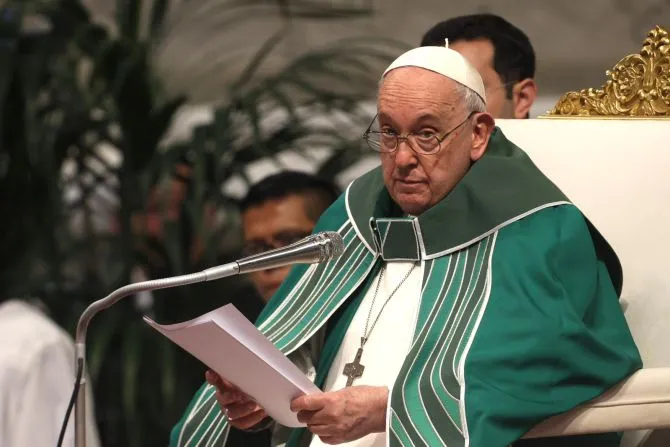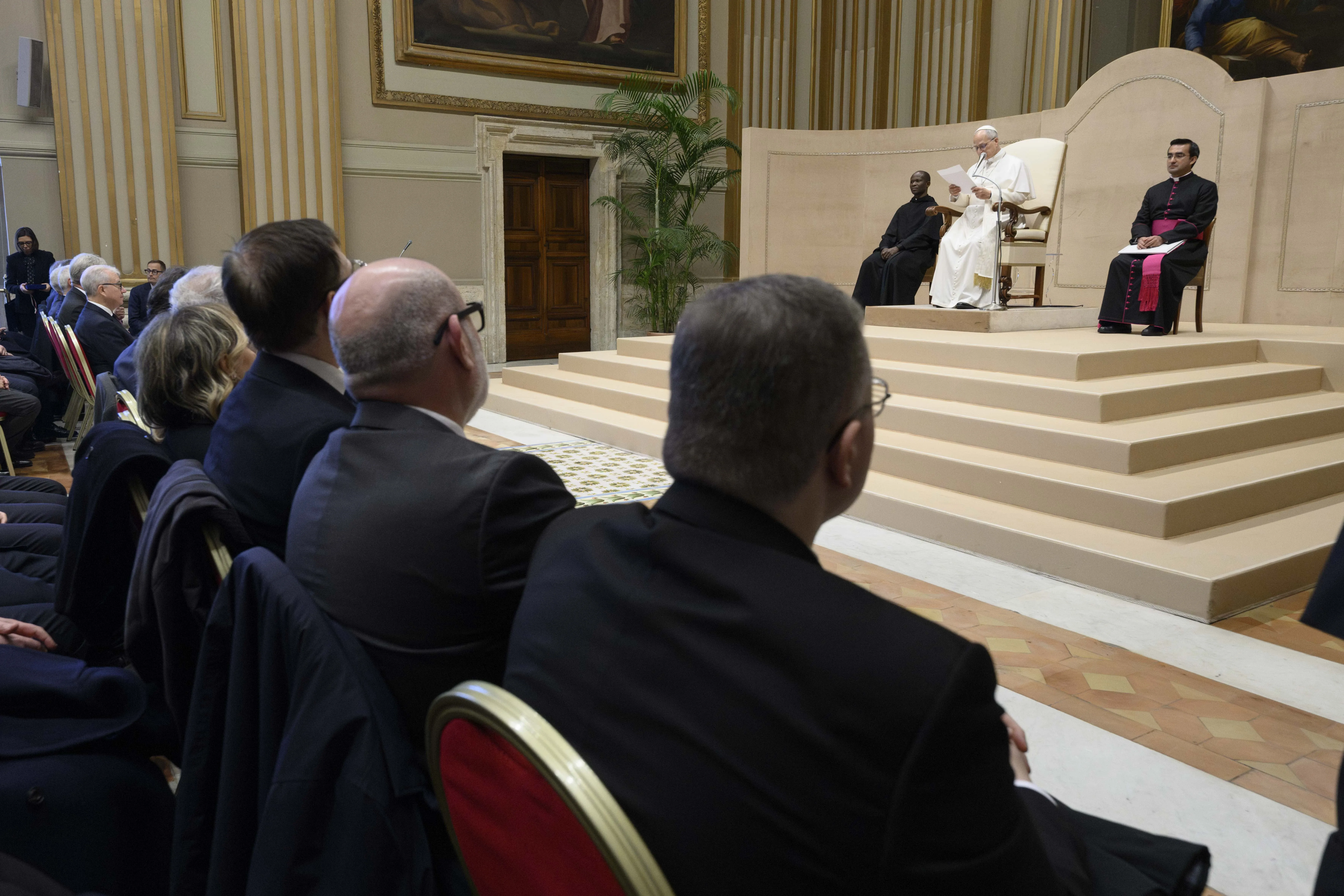Dear Professor Gerl-Falkovitz,
Dear Mrs. Schmidt,
I extend my gratitude for your kind letter dated Nov. 6. Your concerns regarding the current developments within the Church in Germany have reached me, and I share your concerns. There are indeed numerous steps being taken by significant segments of this local Church that threaten to steer it increasingly away from the universal Church's common path. This doubtlessly includes the establishment of the synodal committee you referenced. This committee aims to set up a consultative and decision-making body. However, as outlined in the corresponding resolution, its proposed structure is not in alignment with the sacramental structure of the Catholic Church. Consequently, its formation was forbidden by the Holy See in a letter dated Jan. 16, 2023, which received my specific endorsement.
In my “Letter to the Pilgrim People of God in Germany,” I sought not to find “salvation” in constantly evolving committees, nor to persist in self-absorbed dialogues rehashing the same themes. Rather, I aimed to reemphasize the importance of prayer, penance, and adoration. I urged an openness and a call to action to engage with our brothers and sisters, especially those found at the thresholds of our church doors, in the streets, within prisons, hospitals, public squares, and cities (as mentioned in section 8). I firmly believe that in these places, the Lord will guide us.
I commend your contributions to theology and philosophy and thank you for your witness to the Faith. May the Lord bless you, and may the Blessed Virgin Mary keep you. I kindly ask that you continue to pray for me and for our shared commitment to unity.
United in the Lord,
Francis

Pope Francis was born Jorge Mario Bergoglio on Dec. 17, 1936 in Buenos Aires. After earning a secondary school degree as a chemical technician, Bergoglio felt a call to the priesthood as a Jesuit, joining the novitiate in 1958, at the age of 22.
He was ordained a priest on Dec. 13, 1969. In 1973 he made his perpetual vows in the Society of Jesus and the same year was elected Jesuit provincial for Argentina. He would go on to serve as a seminary rector, a pastor, a professor, and a spiritual director.
In 1992 Fr. Bergoglio was consecrated an auxiliary bishop of the Buenos Aires archdiocese. He became the archdiocese’s coadjutor archbishop in 1997, and succeeded as archbishop the following year. St. John Paul II named Archbishop Bergoglio a cardinal in 2001.
As president of the Argentine bishops’ conference from 2005 to 2011, Bergoglio attended the Fifth Latin American Episcopal Conference held in Aparecida, Brazil in May 2007.
He was in charge of the drafting of the meeting’s final document, which came to be known as the Aparecida document, recognized as an important guiding document for the Church in Latin America and beyond.
On March 13, 2013, Bergoglio was elected to the papacy, at the age of 76. He was the first Jesuit and the first Latin American to become pope.








